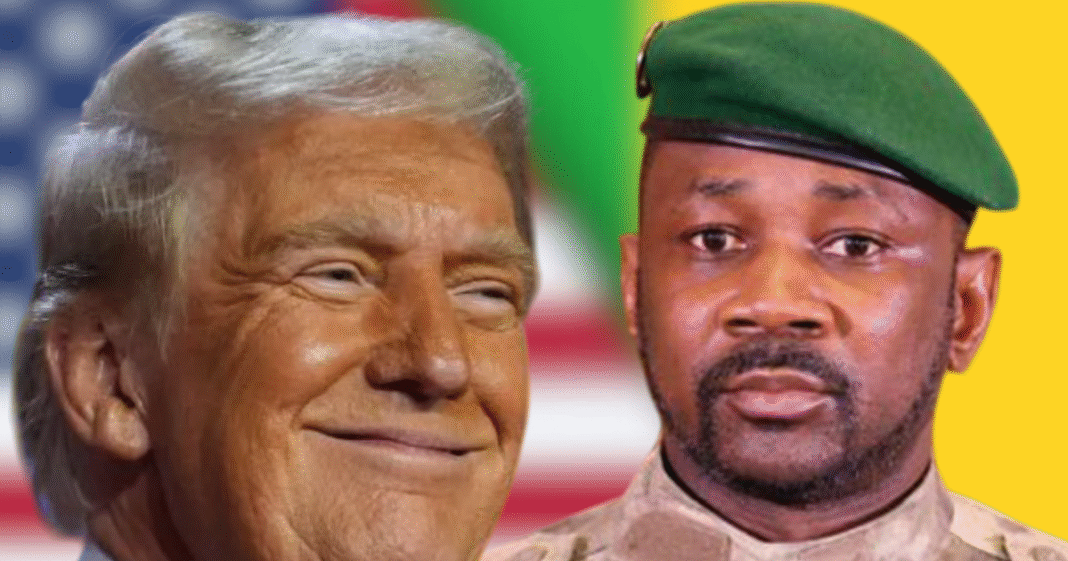U.S.-Mali Relations: A Military Partnership Amidst Controversy
In recent months, an unexpected alliance has formed between the junta-led government of Mali and the United States. This partnership, largely centered around military collaboration, arises against the backdrop of escalating terrorist threats in the Sahel region and a shift in U.S. foreign policy under the Trump administration.
Emerging Military Ties
The relationship between Mali and the U.S. signifies a strategic pivot for both nations. U.S. and Malian leadership have engaged in discussions aimed at enhancing their military cooperation. This newfound collaboration seeks to address mutual concerns regarding the proliferation of extremist groups in West Africa, particularly in a region that has become increasingly unstable.
Under the Trump administration, both countries have set aside previous diplomatic norms to forge a working relationship in combating terrorism. Reports indicate that U.S. intelligence has played a crucial role in helping Mali repel terrorist advances, with the Malian military utilizing this information for counter-strike operations against extremist factions.
Shifting Dynamics in Governance
Mali’s current administration, under General Assimi Goïta, has undergone significant transformations, including two coups in 2020 and 2021. These political upheavals were propelled by growing dissatisfaction among the populace regarding governance and security. The junta’s rise to power has complicated its relationships with Western nations, particularly after making moves to expel French military forces citing ineffective support.
Despite these challenges, U.S. officials, speaking anonymously, have indicated that they are willing to overlook Mali’s governance methods, emphasizing that the priority is collaboration against a common adversary. The message appears clear: the U.S. is ready to extend a helping hand, irrespective of Mali’s political landscape.
The Parallel with Russian Relations
Post-coup, Mali has actively sought to reduce Western influence, particularly from its former colonial ruler, France. This realignment has opened doors for a partnership with Russia, evidenced by the controversial deployment of Russian paramilitary groups, such as the Wagner Group and its successor, the Africa Corps. These forces have provided military support while simultaneously drawing criticism from Western governments and human rights advocates.
Despite the influx of Russian support, the effectiveness of these forces in combating terrorism has come into question. Reports suggest that the situation has only worsened, raising doubts about whether this pivot towards Moscow was truly beneficial for Mali’s security.
Tragic Outcomes in the Sahel
Tragically, the reality on the ground remains grim, with shocking reports revealing over 10,000 deaths last year due to extremist violence in the Sahel. Additionally, a recent study pointed out that the activities of Russian mercenaries have created deep divisions within Mali’s military and transitional governance, highlighting potential instability in the region.
Analyzing U.S. Administration Approaches
The transition from the Biden administration to Trump represents a significant shift in U.S. policy towards Mali. Under Biden, the focus remained on promoting democratic reforms and enforcing sanctions against Malian military officials collaborating with Russian paramilitary forces. These efforts, however, were largely unsuccessful, leading to a deterioration of U.S.-Malian relations.
Conversely, the Trump administration seems more open to pragmatic partnerships, emphasizing intelligence-sharing and military assistance. In July, Trump’s deputy senior director for counterterrorism, Rudolph Atallah, met with Malian authorities to extend U.S. support contingent upon cooperation from Mali.
Sovereignty and Shared Threats
Current U.S. visits to Mali have reportedly been well received, with officials appreciating that American counterparts respect their sovereignty. Malian representatives pointed out a mutual recognition of the need to combat extremist threats, fostering a sense of security and collaboration.
Analysts highlight the differences in leadership approaches between Biden and Trump. Biden’s traditional stance on democracy contrasts sharply with Trump’s more flexible foreign policy, suggesting an era where a broader range of engagement strategies may be considered.
As the U.S. navigates its role in Mali’s complex landscape, both nations face the challenge of maintaining effective communication, as they grapple with a shared enemy in extremism while navigating a maze of political intricacies.



